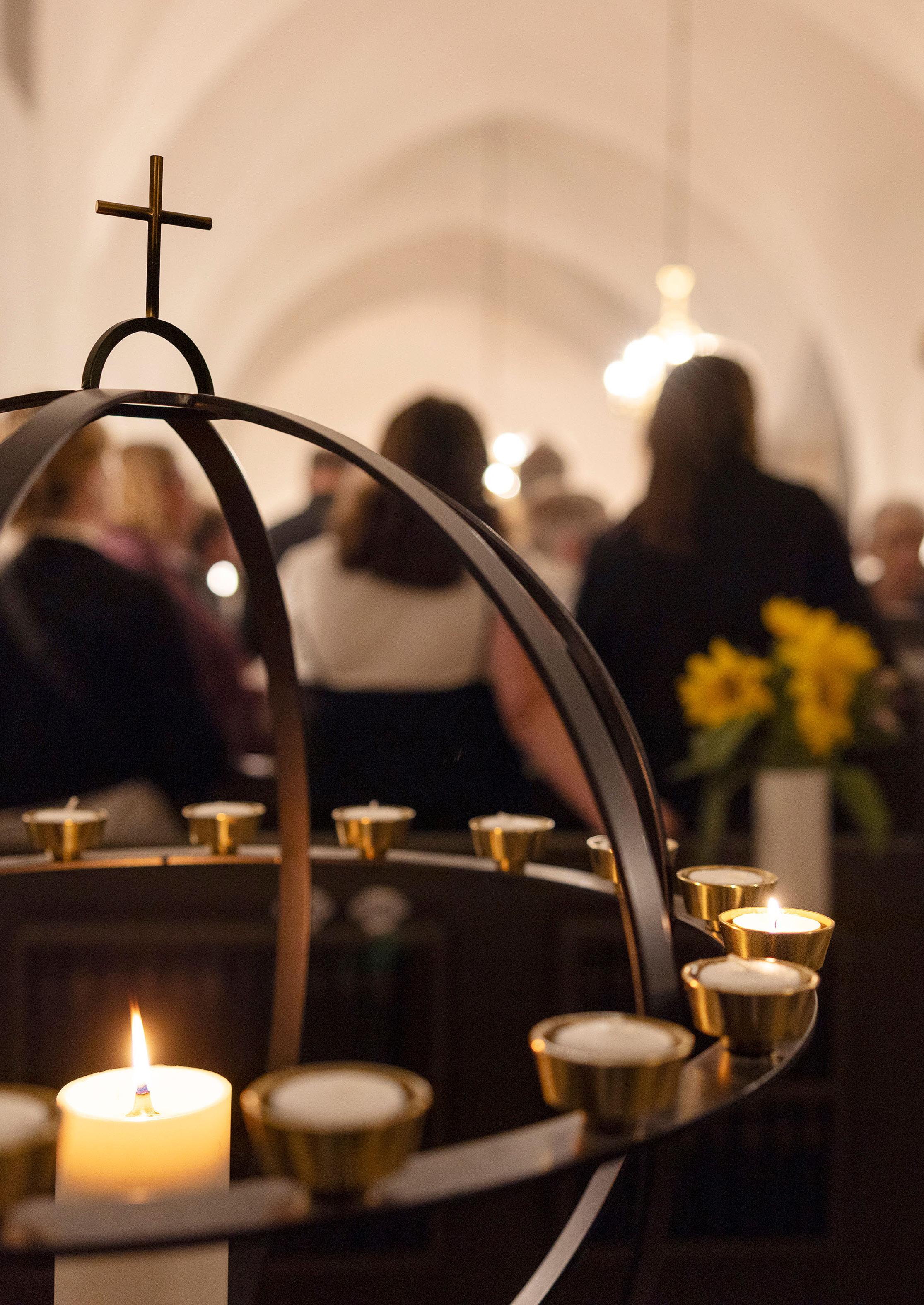Organisational Strategy 2025-2029

Who we are, what we do, what we want to achieve, and who we want to join us



Who we are, what we do, what we want to achieve, and who we want to join us

Danmission is a Danish faith-based organisation that promotes peace, justice and sustainable development in Africa, Asia, the Middle East, and Denmark.
Faith and dialogue are at the core of our identity and our work in the world and in Denmark – our distinctive approach. Faith is a source of hope and action, while dialogue is both a way of life and a key to change across religious and cultural divides.
Based on this, we work to create change within two overall global impact goals:
We work to promote peaceful and just coexistence between people across ethnic, cultural, and religious divides. The goal is for people to be able to live in societies in which conflicts are resolved peacefully, their rights and dignity are safeguarded, and they can participate actively within democratic processes.
We support access to natural resources for the people who need it the most; we help protect nature and biodiversity, and we address conflicts related to natural resources and the climate.
We work in close collaboration with our partners in Tanzania, Kenya, Lebanon, Egypt, Syria, Cambodia, Myanmar, and Denmark.
Within each of these two overall global impact goals, we work with:
Prevention
We support local communities in the countries we work in to stop or prevent polarisation, discrimination, and conflicts, as well as the degradation of nature and natural resources.
We support the individuals and groups most affected by conflicts, polarisation, and discrimination, and by the degradation of nature and natural resources, and we work to ensure their protection and strengthen their resilience.
Participation
We support the ability of individuals and groups in vulnerable positions to freely participate in inclusive and democratic decision-making processes and to advocate for their rights.
In the coming years, we aim to involve even more people in Danmission. We hope that this engagement will help increase our funds, and we will work to grow our institutional grants portfolio so that our ambitions can be realised.
We also aim to influence decision-makers, both locally and internationally, more effectively than we do today. We will do this, not least, through collaborations with other change agents, as we cannot achieve our vision of a more peaceful, just, and sustainable world alone.
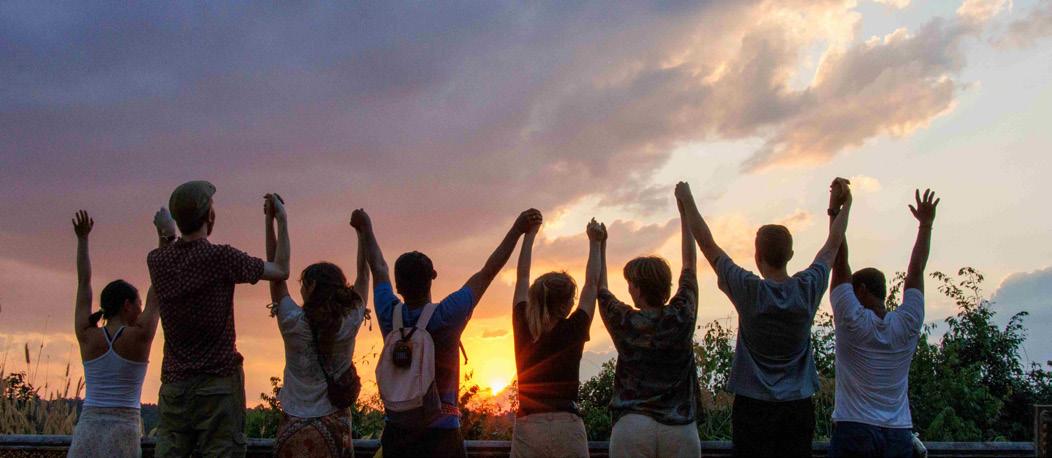
Danmission is a Danish faith-based organisation that promotes peace, justice and sustainable development in Africa, Asia, the Middle East, and Denmark.
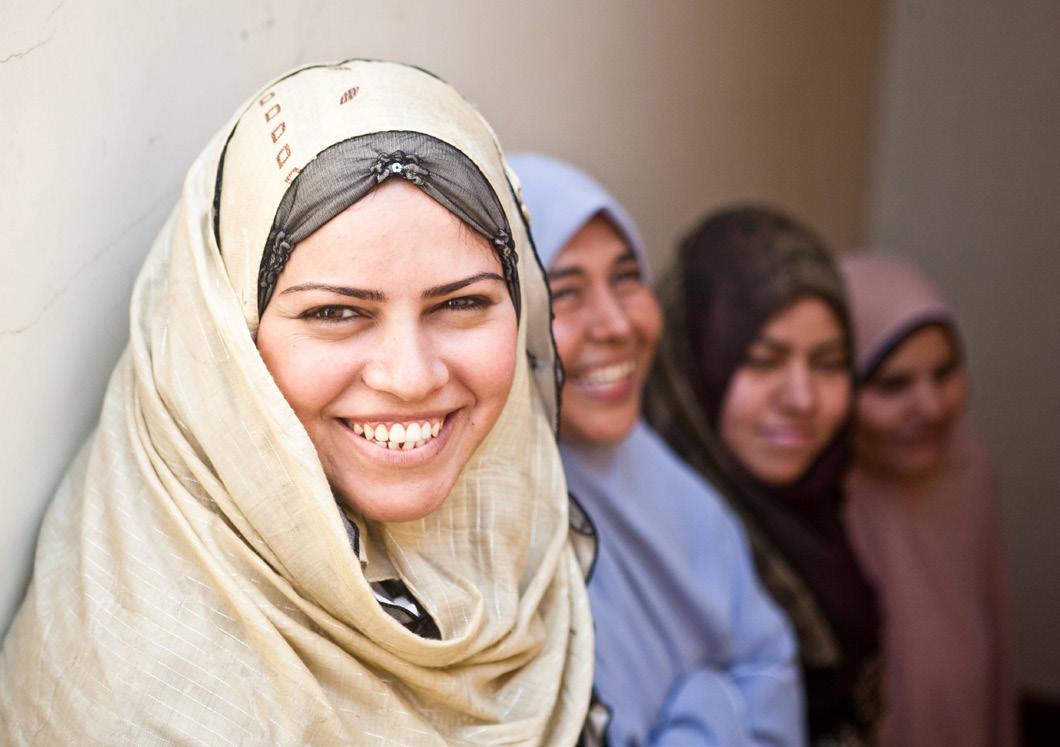
Vision
We work to promote a peaceful, just, and sustainable world in which people can freely practise their beliefs and faith.
Our work is founded upon our Christian worldview, and our approach is guided by the belief that there is hope, there is forgiveness, and there is life. We believe that we are created to live in community, in connection with nature and in harmony with one another across borders and nationalities, and that the injustice of the world must be met by deeds of love.
We believe that dialogue between people with different views and religions is an important foundation for peaceful, just, and sustainable coexistence. Our conviction is that churches, faith-based organisations, and religious actors are important for creating lasting social change.
We have witnessed how these actors are able to enhance the spiritual well-being of individuals, connect belief with action and hope, and reach those who need it the most. We meet other faith communities with openness; faith binds us together and commits us to understanding and cooperation.
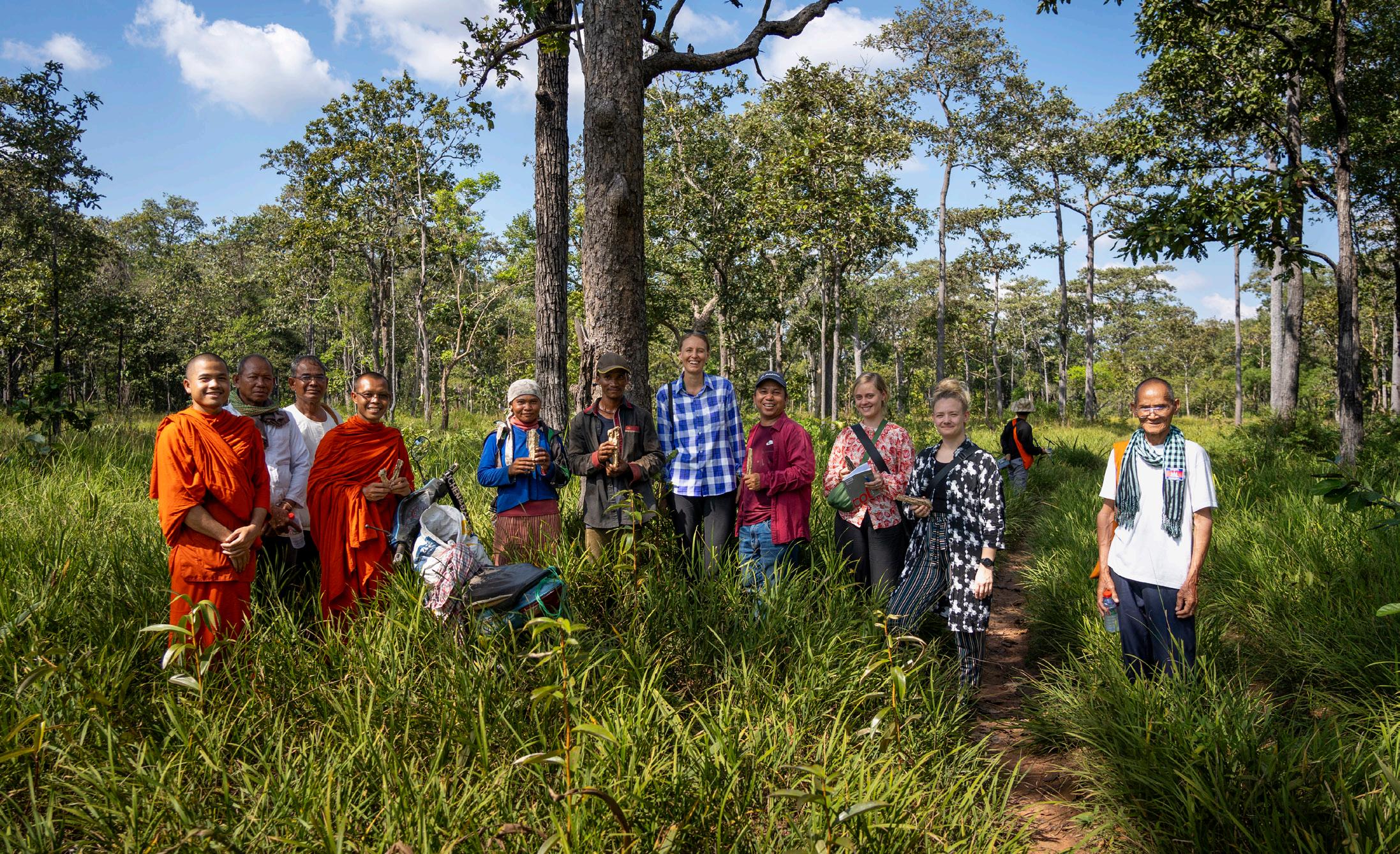
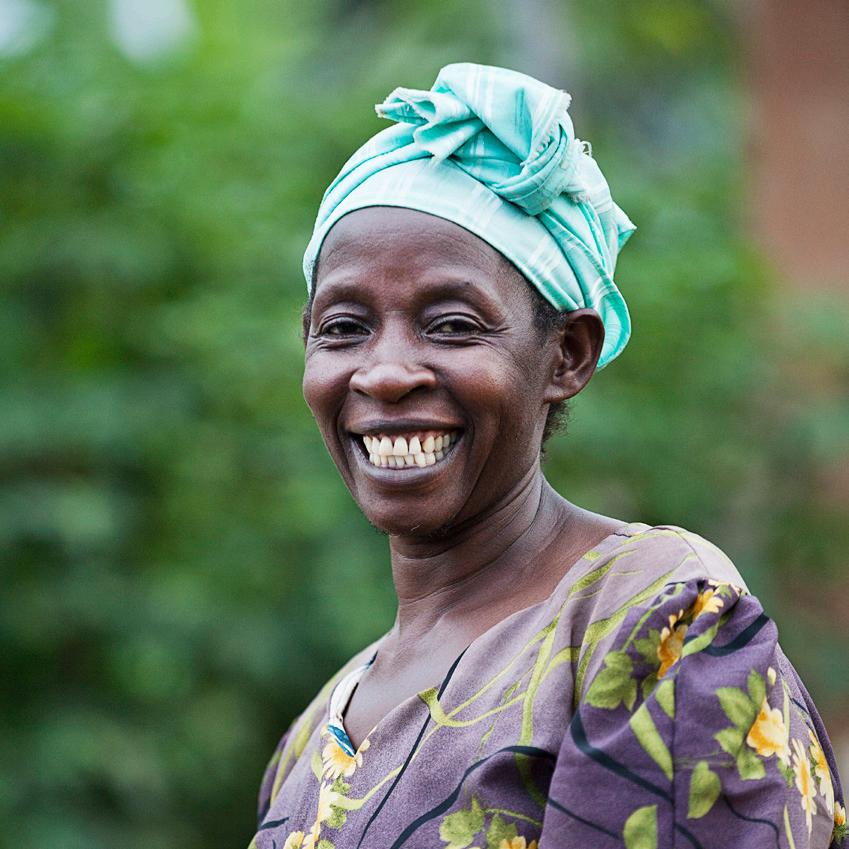
y Our Christian faith and human rights go hand in hand; all people are of equal value, and we therefore stand up for women’s rights in particular, and refuse to tolerate discrimination, harassment, or the oppression of minority groups.
y Democracy needs religion and the inclusion of religious voices, and peace can only be achieved through understanding and dialogue; for this reason, we pursue interfaith dialogue and strive to strengthen the work of churches both locally and globally.
y All people have the right to believe and practise the religion, belief, or worldview of their choice; for this reason, we pursue freedom of religion or belief for all.
y Church fellowships can create change; this is why we stand together with our church partners as one global church community in the face of the world’s challenges.
y Those of us who live in the Global North have a great responsibility for the state of the planet and a duty to support those who feel the consequences of our actions; this is why we work with nature and climate in our programmes, operate second-hand shops in Denmark and have a strategy in place to reduce our carbon footprint.
Danmission is a faith-based organisation rooted in the Evangelical Lutheran Church in Denmark, with a history stretching back more than 200 years. We were established in 1821 as the Danish Missionary Society and in 1867 as Dansk Santalmission – two organisations which merged in the year 2000. From the very beginning, the purpose has been to share the gospel and to pursue church-based social work (diakonia). In the beginning of the 20th century, several missionaries began to rebel against the ideas of Western dominance, distinguishing themselves as advocates for greater respect for local cultures and spiritual customs. After World War II, the independence of churches was put on the agenda. These events were the building blocks for the equal partnerships that characterise our work today, as well as the respect with which we meet people from cultural, faith, and religious backgrounds that are different to our own.
Our history and the work of our organisation have always been influenced by the norms of the time, and it is also a history that has been shaped by many struggles over time. There has been a continuous need to ensure a balance between preserving our rich traditions and moving on from outdated attitudes and practices. This means that today, Danmission is a progressive, faith-based organisation that works to strengthen global development and rights, with faith, religion, and dialogue in the centre.
We are a democratic organisation, and the Board of Representatives is our highest authority. Public engagement is an important prerequisite for Danmission’s work both at home and around the world. Central to our work are the many volunteers who contribute their time and energy to our second-hand shops, participate in the organisation’s democratic governance, or otherwise take on vital tasks. We are rooted in the Evangelical Lutheran Church in Denmark, and we are also a part of the global Christian fellowship.
Meaningful encounters between people are central to us – whether it be collaboration between the Global South and North, dialogue across religions and cultures, or the relationships between people in our programme countries and among Danmission’s members. Danmission no longer dispatches missionaries but instead prioritises having a local presence in the form of regional offices with primarily local employees.
We work in equal partnerships with local partners, and partnership forms the basis of our work, both in our programme countries and in Denmark. We have long-standing and close partnerships with several churches and organisations with whom we share our faith. In our projects, we also work with organisations from other faith communities, as well as interfaith and secular organisations and networks, with respect for the perspectives of others and with a view to achieving lasting results. We support the local leadership of our partners in creating changes in the communities of which they form a part.
We have programmes in Tanzania, Kenya, Myanmar, Cambodia, Lebanon, Syria, Egypt, and Denmark. We also offer smaller-scale project support through volunteers in Bangladesh, India, Madagascar, and Pakistan.
Since the adoption of the SDGs in 2015, great progress has been made in the areas of poverty alleviation, education, health, and the provision of other basic services in some of the world’s poorest countries. But we also live in a world where inequality on a global scale is increasing, and a large group of poor people are left behind. The world is increasingly marked by escalating conflicts and divisions, which drive xenophobia, discrimination, marginalisation, and violence, often due to faith, ethnicity, gender, or other identities .This also means that democracy is under pressure worldwide – even in Western countries with proud democratic traditions – and we are seeing an increasing tendency towards greater polarisation. Polarisation is a threat to the very essence of democracy, which is predicated precisely upon conversation (dialogue) and mutual understanding and respect.
Even though freedom of religion or belief (FORB) is a fundamental human right, it is under pressure in many countries, and the democratic scope and freedom of individuals to practise their faiths is being restricted.
The accelerating climate and biodiversity crisis, together with the overexploitation of natural resources and environmental degradation, is contributing to the loss of livelihoods, forced displacement and resource and climate-related conflicts. This especially affects countries where populations are dependent on natural resources.
These conflicts and the climate and biodiversity crises are linked – they often reinforce one another and exacerbate existing vulnerabilities and social divisions in contexts that are already characterised by fragility and social fragmentation. Those individuals and groups who already live in vulnerable or marginalised conditions are hit the hardest by conflicts and crises. This includes religious and ethnic minorities, women, young people, and others who struggle to influence decision-making, gain access to or control over the natural resources that are crucial to their livelihoods, or who struggle to express their identity and beliefs without fear of persecution.
Amidst these challenges, we can also find examples of resilience and cooperation, which offer hope that collective efforts can withstand and transform the threats of conflict and crisis.
According to the Pew Research Centre, 84 percent of the world’s population identifies as religious. In many countries in the Global South, religion plays a much more significant role than we are used to in Denmark. Religion provides a unique platform for action and collaboration, while faith remains a powerful source of hope, resilience, and connection. Religion shapes norms, identities and practices for billions of people, influences behaviour and promotes cohesion in society. Yet, when exploited, it can also be a driving force for division and exclusion.
Churches and faith-based actors are essential contributors to social change, and they often play a significant role in civil society in the Global South. They are often present where
other social institutions are not, and they often reach the most vulnerable.
The world has not been as geopolitically uncertain as it is today since the days of World War II. At the same time, we are also facing a climate crisis of massive proportions, which
threatens the existence of people and the planet. We all need to navigate our way through this and do our part to move the world to a better place. With the SDGs as a compass and in the light of the challenges the world is facing, we have chosen to focus on two overall global impact goals.
Our work is rooted in two overall global impact goals:
• Peace & Democracy
• Nature & Climate
Faith and dialogue form the foundation on which we stand, enabling us to create change.
We work for peaceful and just coexistence between people across ethnic, cultural, and religious divides.
The goal is for people to be able to live in societies in which conflicts are resolved peacefully, their rights and dignity are safeguarded, and they can participate actively within democratic processes.
In Myanmar, the military rules brutally, and the conflict between the military and ethnic minorities has led to human rights violations which, with the regime’s oppression of the Rohingya, constitute an example of religion-based persecution. Civil society and human rights defenders are under pressure, and opposition to the regime and the fight for democracy are met with fierce resistance.
In Cambodia, legislation, corruption, and the abuse of power restrict the scope of civil society, and religious minorities such as Muslims and Christians are subject to discrimination in the Buddhist-dominated society.

Conflicts and wars in the Middle East have led to widespread distress and insecurity, especially for vulnerable population groups. In Syria,
Lebanon and Egypt, conflicts are fuelled by a mix of sectarian tensions, geopolitical interests, and ethnic divisions. For example, some recognised and unrecognised religious groups in all three countries experience discrimination and a lack of equal rights, especially with regards to freedom of religion or belief. In Lebanon, political instability due to the confessional division of power and widespread corruption often leads to tensions between religious groups.
Internal conflicts and polarisation in Kenya and Tanzania challenge democracy and create divisions among the population. Religious minorities experience discrimination and violence, often in conflict areas or because of tensions between Christians and Muslims.
Even in Denmark, where religious freedom thrives, the debate around Islam, hate crimes, and religious criticism has made it difficult to strike a balance between freedom and respect. According to a report from the Danish Institute for Human Rights and Children’s Rights published in 2024, half of the ethnic minority students in Danish primary schools have experienced bullying because of their religion, skin colour, nationality, or culture. Although we tend to see ourselves as a leading democratic nation, the fact is our democracy is under pressure. The Danish Youth Council’s Democracy Analysis from 2024 shows that over half of young people in Denmark have low levels of democratic self-confidence, meaning they do not feel that they have anything to contribute to political and value-based discussions
Together with our partners, we are working to break the cycle of violence and division in situations characterised by conflict and war. At the same time, we are also working to counteract religious extremism and polarisation, and to promote inclusion and justice.
We work to strengthen a diverse civil society and to promote democratic education – especially among young people in societies where everyday democracy faces difficult conditions. We work to ensure that no one experiences discrimination because of their gender, faith, or worldview – and this applies both to our work in the world and in Denmark
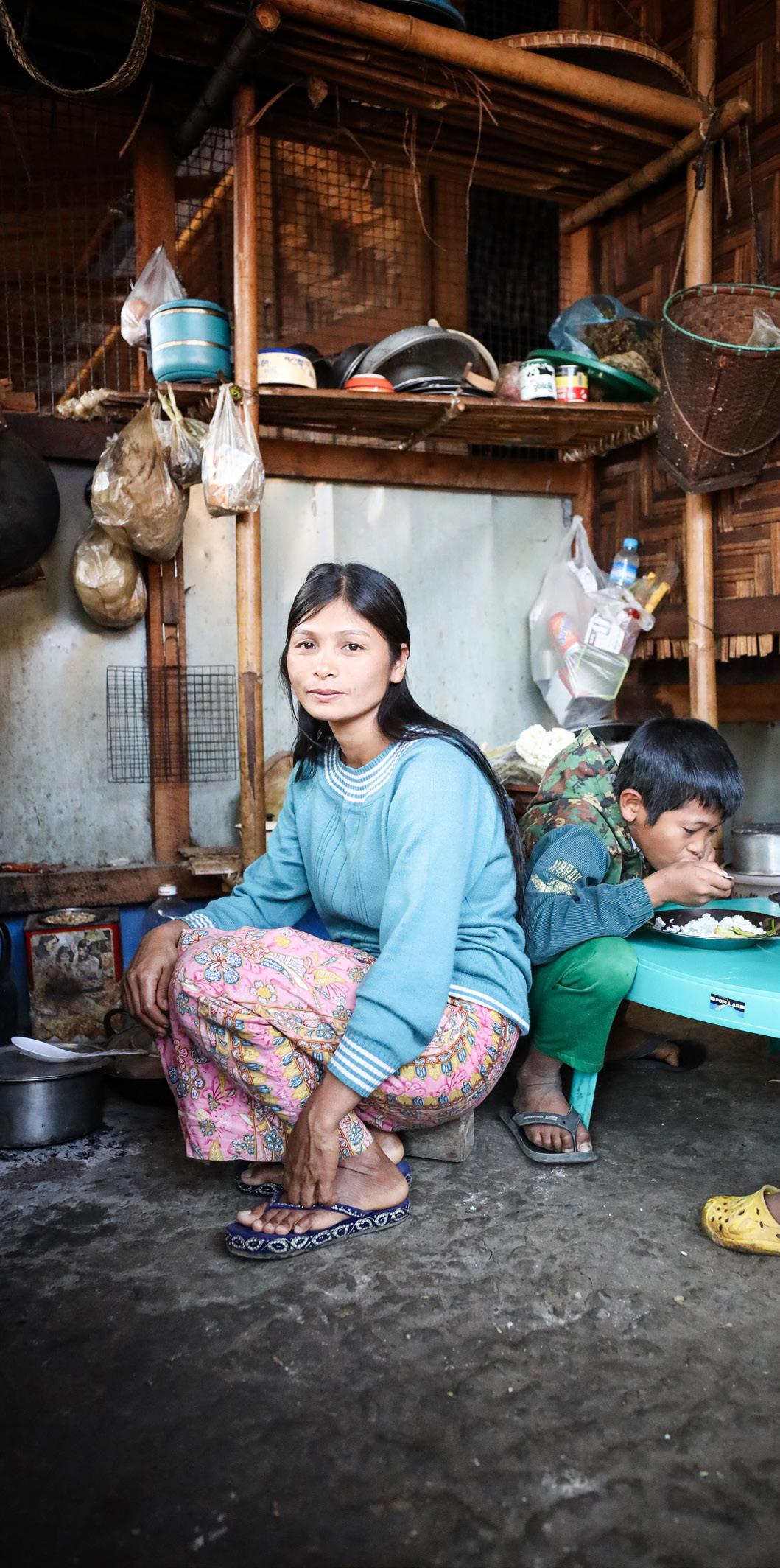
In Lebanon, there is no secular legislation within the area of family law. Instead, family law is formulated around the eighteen recognised religious communities in the country, and so it therefore depends on which religion one belongs to. All these religious laws discriminate against the rights of women and those of their children. Together with our partner Adyan, Danmission brings together legal experts (both lawyers and ecclesiastical judges) and religious leaders across faiths and denominations in a project that is focused on strengthening
People who currently experience marginalisation and discrimination – especially women, young people, and religious minorities in the communities we work in – will be protected from harassment, have greater resilience to resist discrimination and an ability to address conflicts. They will be able to participate openly and actively in fair, inclusive and democratic decision-making processes within the forums that are relevant to them.
We will support people in communities and groups where there is polarisation and division due to issues of ethnicity, faith, or identity, helping them to come together and address or prevent the causes of discrimination, polarisation, and conflict.
We will support those individuals and groups most affected by conflict, polarisation, and discrimination, especially women, young people, and religious minorities, working to ensure their protection and resilience.
We will support those groups that experience the greatest degree of vulnerability and marginalisation, most often women, young people, and religious minorities, so that they can freely participate in decision-making processes that are both inclusive and democratic.
gender equality in relation to religious family legislation – including rights relating to marriage, divorce, and inheritance.
The collaboration contributes to strengthening focus on the problems that women and children – both Christians and Muslims – experience under current legislation. The project is currently working to present draft legislation and other ideas on how to strengthen respect for human rights and women’s rights in the existing legislation.
We support access to natural resources for the people who need it most; we help protect nature and biodiversity, and we address conflicts related to natural resources and climate.
The goal is to ensure more equitable and sustainable levels of access to and consumption of the Earth’s resources.
In Kenya and Tanzania, local people are struggling with drought and unpredictable weather conditions that are destroying harvests and creating food insecurity. At the same time, forests in Tanzania are disappearing at a rapid pace due to illegal logging practices.
In Cambodia, deforestation and the overexploitation of nature are also leading to the loss of biodiversity. This not only has a devastating impact on nature and the climate, but also on the ability of local people to access and manage natural resources, increasing their vulnerability. For the Indigenous Peoples who live in the forests, this is not only a physical loss, but also a spiritual one, as their access to sacred places in nature is restricted.
In Myanmar, poverty and marginalisation are increasing because of floods, which are caused, among other things, by rising water levels and changing precipitation patterns. The country has vast natural resources, including forests, minerals, and agricultural land, but many of these resources are exploited in an unsustainable manner. Deforestation is one of the most pressing problems facing the country, as large areas of its tropical forests are being cut down for timber and to make way for agricultural production, especially for export purposes.
Several of our programme countries in the Middle East are facing acute problems with water shortages, and this is creating new conflicts. Lebanon is also struggling with growing waste problems and deforestation – issues which are related to local overconsumption and a lack of sustainable management systems for natural resources. Climate change is
further aggravating the situation through longer drought periods and problems with water supply. In Egypt, an increased demand for agricultural land and limited access to water are making it difficult to produce enough food to feed the country’s population. Climate change, including rising temperatures and changes in precipitation patterns, are making these challenges even more difficult to contend with.
Syria is also facing climate-related challenges. Prolonged droughts and a lack of precipitation, combined with a growing population, have led to serious problems in the agricultural sector and with the water supply. When natural resources are scarce and the population experiences the effects of their mismanagement, the vulnerability of society and its stability increases.
Denmark is a major consumer of the Earth’s resources, and according to the Global Footprint Network, it would take over four Earths’ worth of resources if everyone in the world were to live by Danish standards. Moreover, Danes throw away enormous amounts of waste every year, requiring greater levels of sustainable management and a higher recycling rate.
Together with our partners, we are working in areas where climate change is having a noticeable impact, resulting in increased precipitation or long periods of drought, and where the loss of nature and biodiversity, such as deforestation and the deterioration of soil and water quality, is limiting the ability of local populations to access natural resources. Our work in nature and climate is closely connected to issues of poverty, justice, conflict prevention, and the right to freedom of religion or belief.
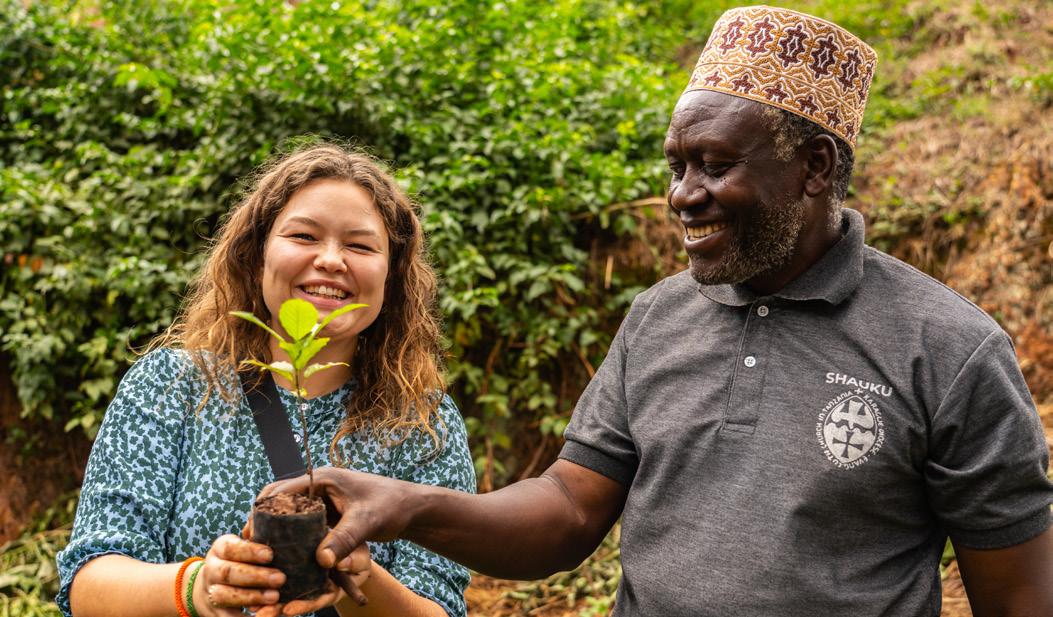
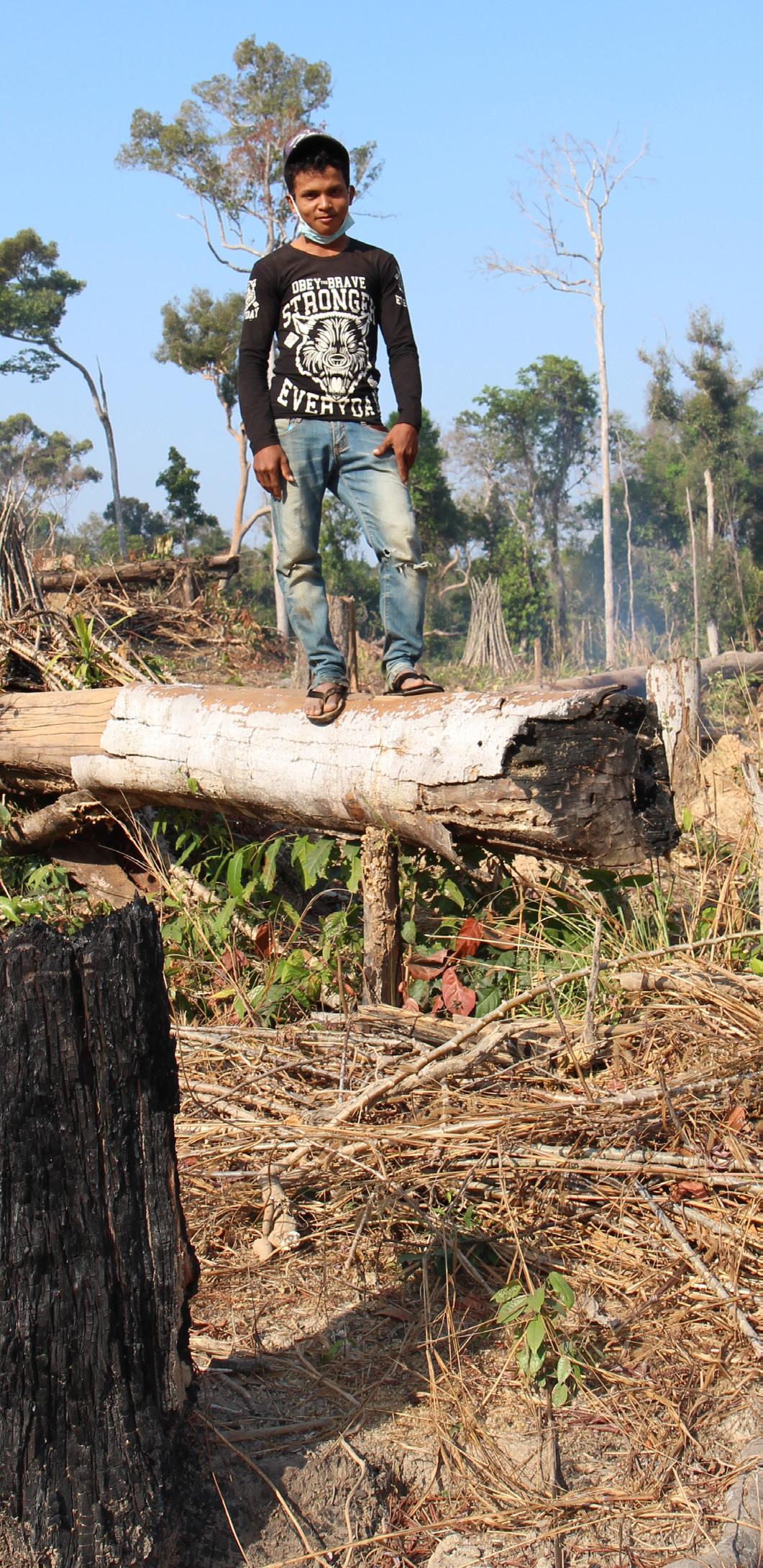
In Tanzania, natural resources are under increasing pressure due to overconsumption and climate change. This has a negative impact on the population’s livelihood. That is why Danmission, together with the Lutheran Church in Tanzania, supports the Uwakili project, a name that means stewardship. The project supports local communities in organising themselves into groups across gender, age, and religion to better protect and manage their local natural resources such as forests, land,
The destruction of ecosystems that are important to the local communities and Indigenous Peoples that we support will have stopped completely or been reduced. The local population will have built up resilience and have better access to natural resources and healthy local ecosystems. They will be able to participate in the administrative management of natural resources and experience fewer local conflicts over forests, water, and land.
We will support local populations who are dependent on access to natural resources, but where natural resources such as forests, water or soil are being depleted or destroyed, in their fight to stop or reduce the destruction.
We will support the individuals and groups who are most affected by the destruction of nature and natural resources today, helping them to restore their living conditions and strengthen their resilience in fragile situations characterised by unstable weather conditions or natural disasters.
We will support individuals and groups who depend on vital natural resources to advocate for their rights and work with relevant institutions to ensure their participation in decision-making processes concerning natural resources and just solutions to resource-related conflicts.
and water collectively. Uwakili also creates new income opportunities for local communities and contributes to resolving conflicts between distinct groups regarding land use rights – for example, between nomads, farmers, and those responsible for protected areas. Through an interfaith body, Uwakili also helps influence legislative work so that new and fairer laws are enacted for the management of local natural resources.
Faith and dialogue are at the core of our identity and our work in the world and in Denmark – our distinctive approach. Faith is a source of hope and action. Dialogue is a way of life and a way of being present in the world, but it is also a key to change. Dialogue builds bridges and creates space for community and action across differences.
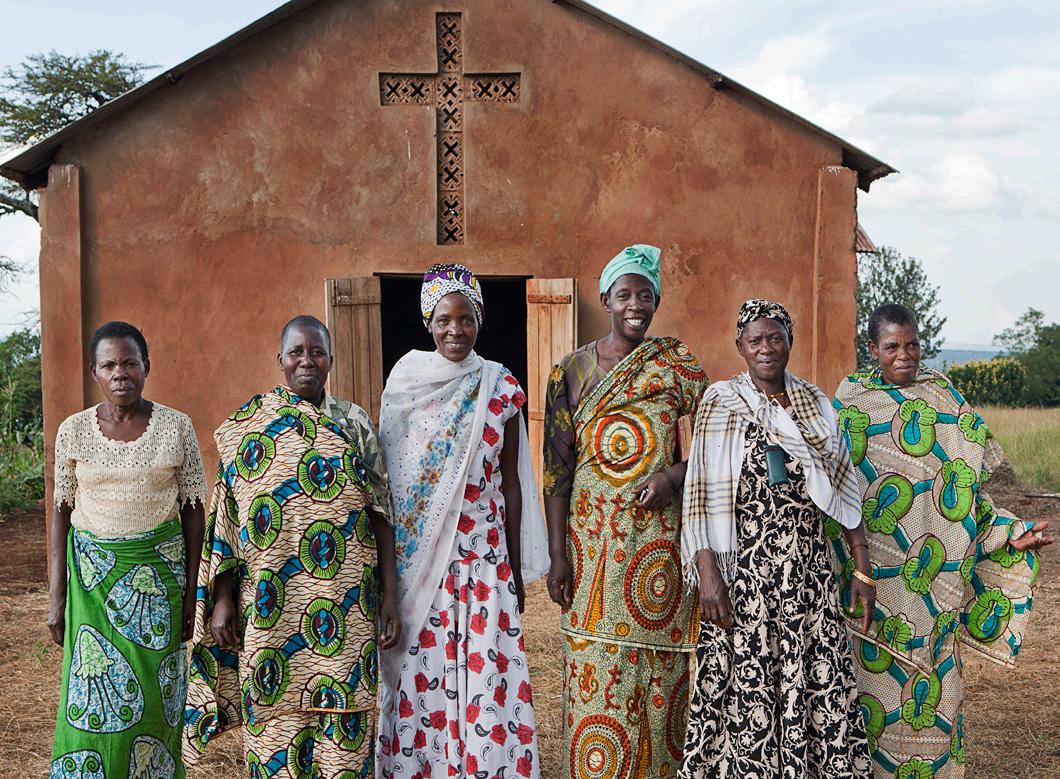
Faith and religion are of crucial importance to most societies. We work to strengthen the capacity of churches and other religious institutions to play an active role in the development of local communities and to be a part of global church cooperation. Socially relevant theological thinking and practice are a central part of our efforts – both as a means of achieving the social changes we have outlined above, but also as independent efforts.
We have years of experience with interfaith dialogue. Central to our approach is dialogue between people with different beliefs and worldviews. That is why we support faith-based organisations in their work to promote dialogue. Over the next five years, we want to develop our expertise and work within this area to drive change towards our overall global impact goals in Peace & Democracy and Nature & Climate.
We support churches, organisations and church-based educational institutions in promoting socially relevant forms of theology and action that are based on Christian hope, and which address specific and contextual issues.
In addition, we also help create safe spaces where people can meet, reflect, and support one another in difficult situations.
We support networks and forums in promoting cross-cultural and interfaith relations, understanding and action through dialogue. We strengthen the development of innovative approaches to dialogue as a way of existing in a diverse and increasingly polarised world, and as tools for change, especially in circumstances marked by conflict. We work with diapraxis –dialogue through communities of action – as a method of both creating change in society and developing mutual understanding between groups across cultural and religious divides.
We are a leading player in Denmark and internationally when it comes to interfaith dialogue that creates concrete results, especially within Peace & Democracy – we call that our signature.
When crises and disasters strike in our programme countries, regardless of whether they are ongoing political crises or natural disasters, Danmission always adjusts its programme work in relation to the situation and the capacity of our partners. Specifically, this means that we provide emergency aid through our partners when needed and, as an organisation, are increasingly addressing crises arising from developments in our programme countries.
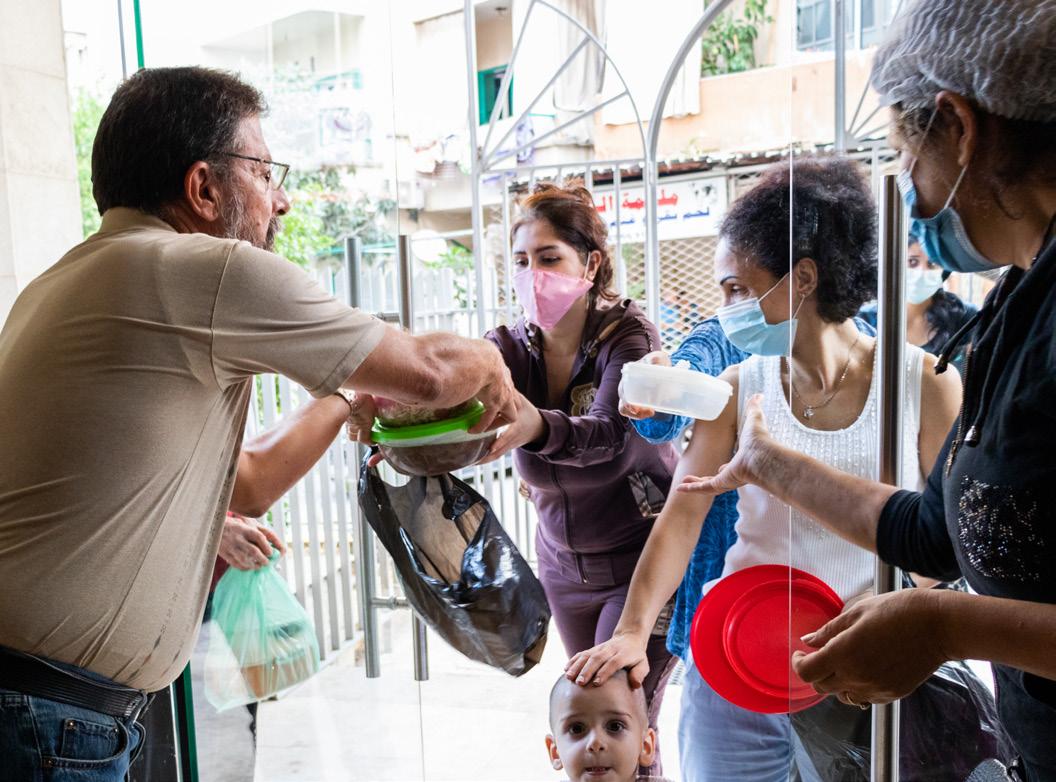
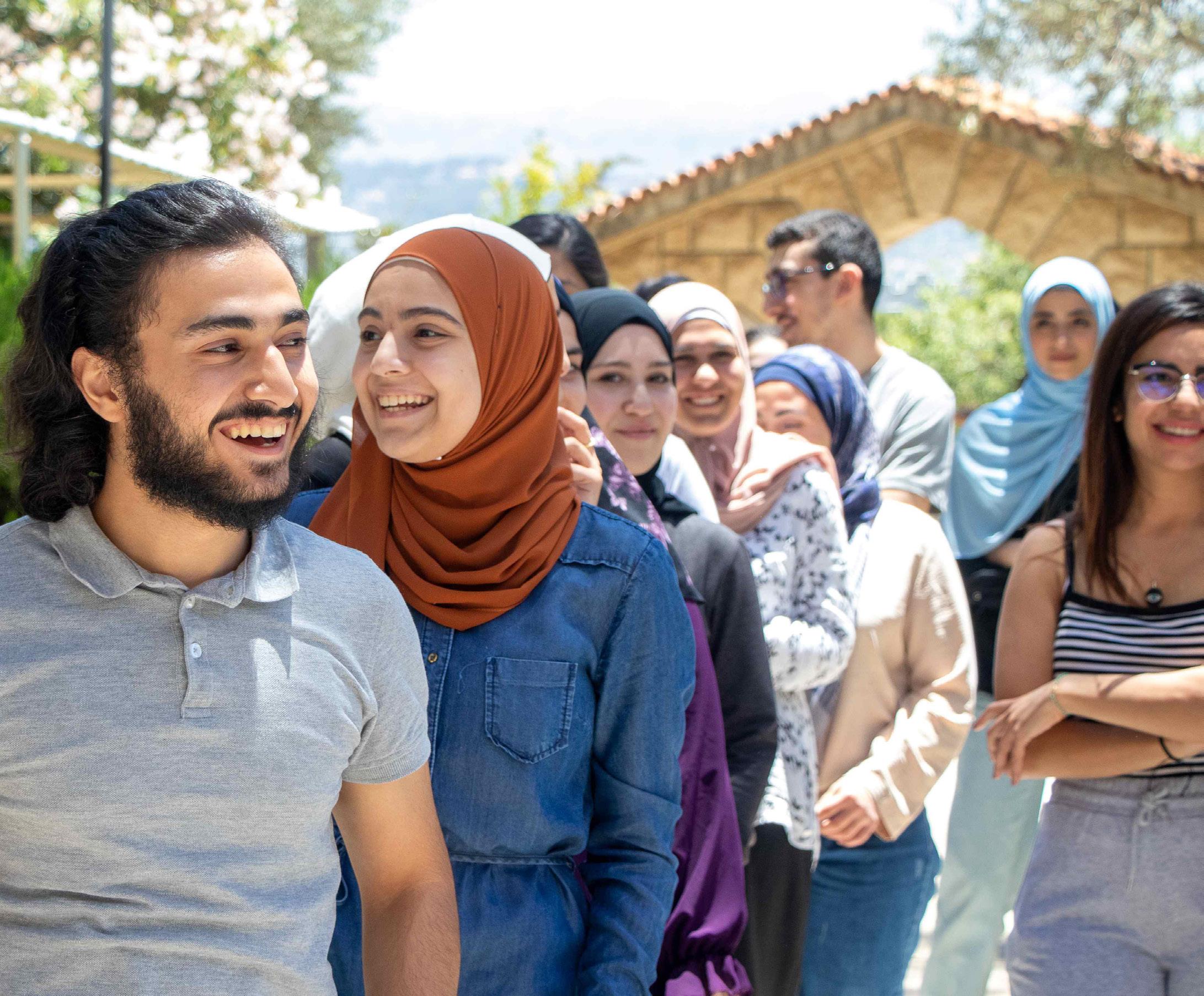
Dialogue is a way of life. It is a way of being present in a diverse world. It is both a way of talking to each other and a way of appreciating and collaborating across differences. Dialogue involves a willingness to examine how and why we disagree with others. The deeper understanding we seek in dialogue does not necessarily mean agreement, but dialogue can nonetheless create a space for understanding and cooperation across religious and cultural divides.
At Danmission, we work with dialogue through our project entitled Din og min Verden (EN: Your World and Mine), which is a course for schoolteachers in Denmark that aims to strengthen the dialogical and interreligious competencies of both tea-
chers and students. Our pilot project in primary schools in 2020 demonstrated that dialogue has the pedagogical potential, among other things, to facilitate conversations about culture, faith, and worldviews as dialogue is based on curiosity and a desire to understand other perspectives. The pilot project also showed that dialogical methods help students to see that they have attitudes and values that are worth listening to, regardless of what religion or worldview they profess. Din og min Verden is a project that supports primary schools in educating students to become democratic citizens and in ensuring that the school’s work is characterised by freedom of thought, speech, and religion (DA: åndsfrihed), equality, and democracy.
who we
For Danmission, our roots in the Evangelical Lutheran Church in Denmark and in popular society in Denmark are important, as they lend support, legitimacy, and fellowship to what we do.
In the coming years, we aim to involve even more people in Danmission, and that this engagement will help increase our funds.
We also aim to influence decision-makers, both locally and internationally, more effectively than we do today. We will do this, not least, through collaborations with other change agents, as we cannot achieve our vision of a more peaceful, just, and sustainable world alone.
This means:
Reaching more people in Denmark with stories about our work and who we are. Conducting political advocacy work and entering into collaborations to achieve lasting results.
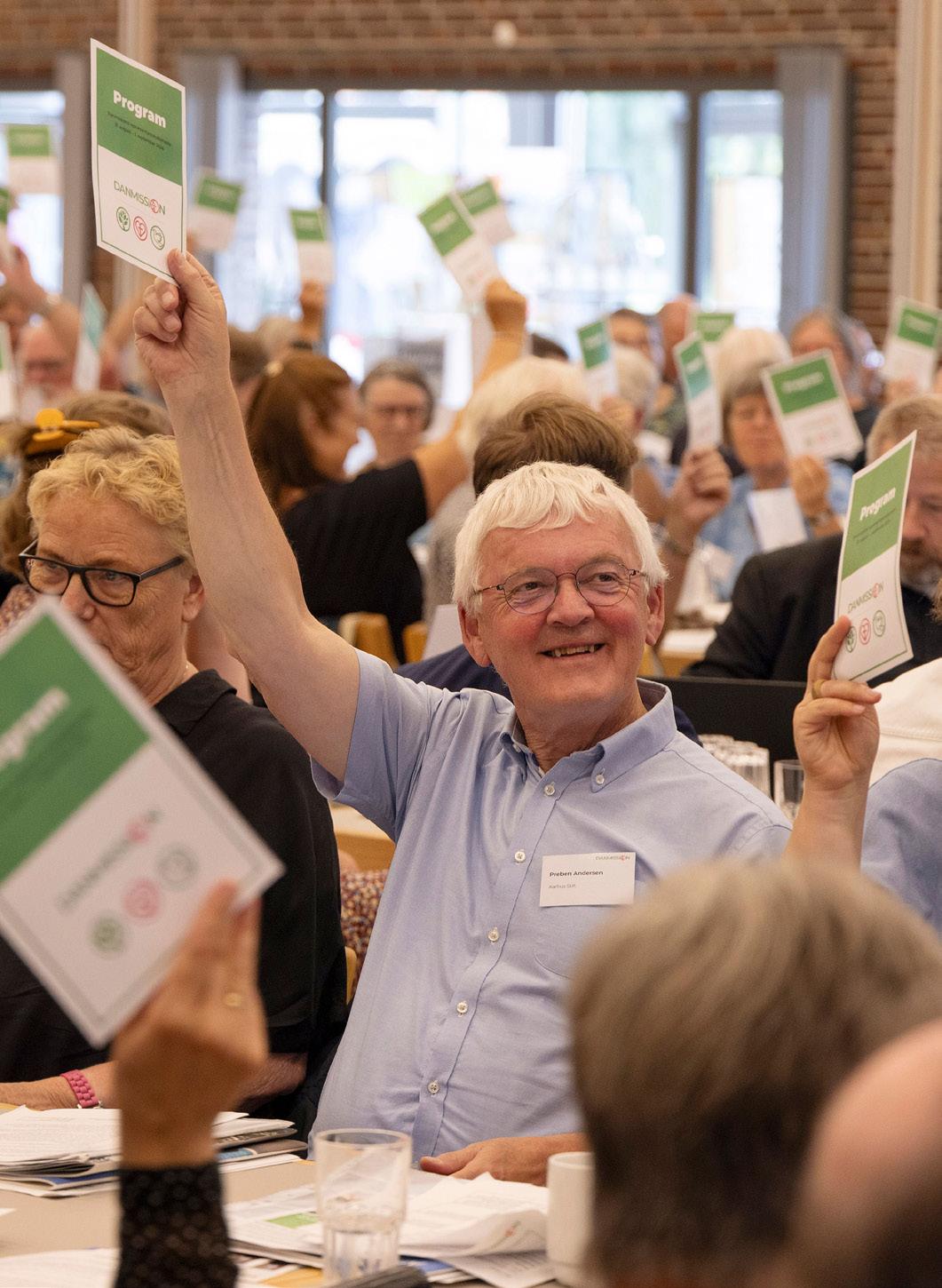
We will have a strong collaboration with the Evangelical Lutheran Church in Denmark and other relevant institutions to reach more people. We will enjoy wide recognition and support among members of the Evangelical Lutheran Church in Denmark. More people will know about us and view us as a modern, church-based organisation, and they will recognize us primarily for our work promoting dialogue, democracy, and peace.
We will be making a clear mark in Denmark among decision-makers, especially within the areas of dialogue, peace work and democracy. At the same time, we will also be engaging in meaningful collaboration that create change in communities in which we work – both at home and abroad.
Our Dialogue in Denmark programme will have created new opportunities for engagement and communities of action across the country.
We will have raised greater awareness and collaborations, leading to new members, contributors, and active volunteers in Denmark through targeted and coherent engagement initiatives, fundraising and membership efforts.
We will have a democratic association and network structure that creates better conditions for engagement
To leave the mark on the world that we want to, we must grow. Over the next four years, our aim is to grow by around twenty percent through more private donors, by increasing the revenue we bring in through our secondhand shops and by growing our institutional grants portfolio.
